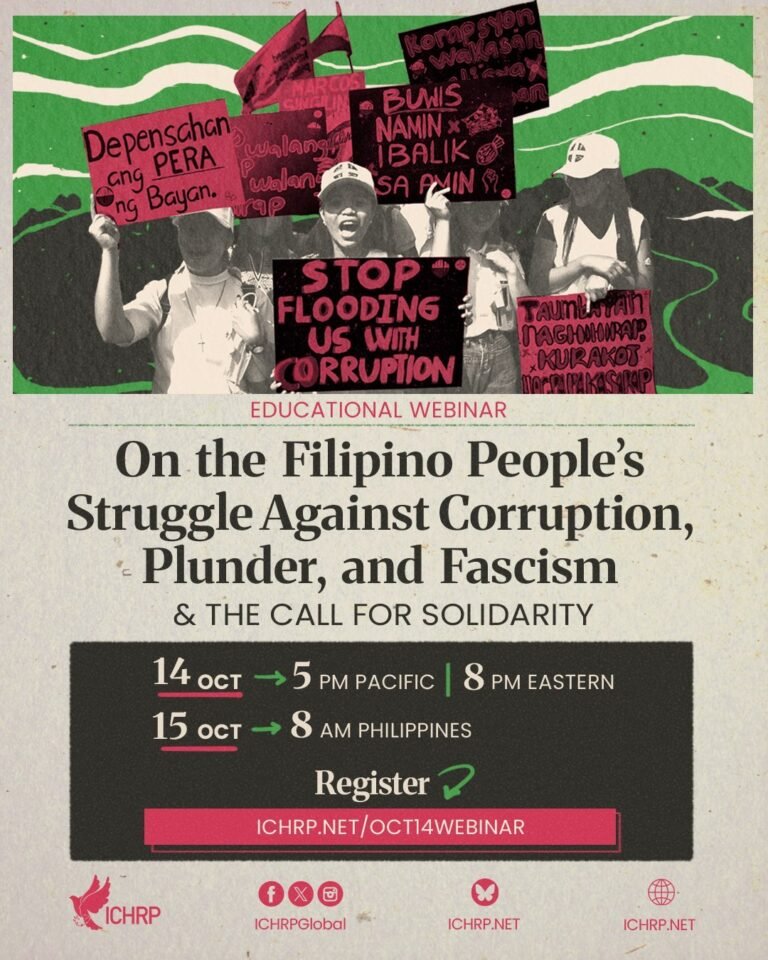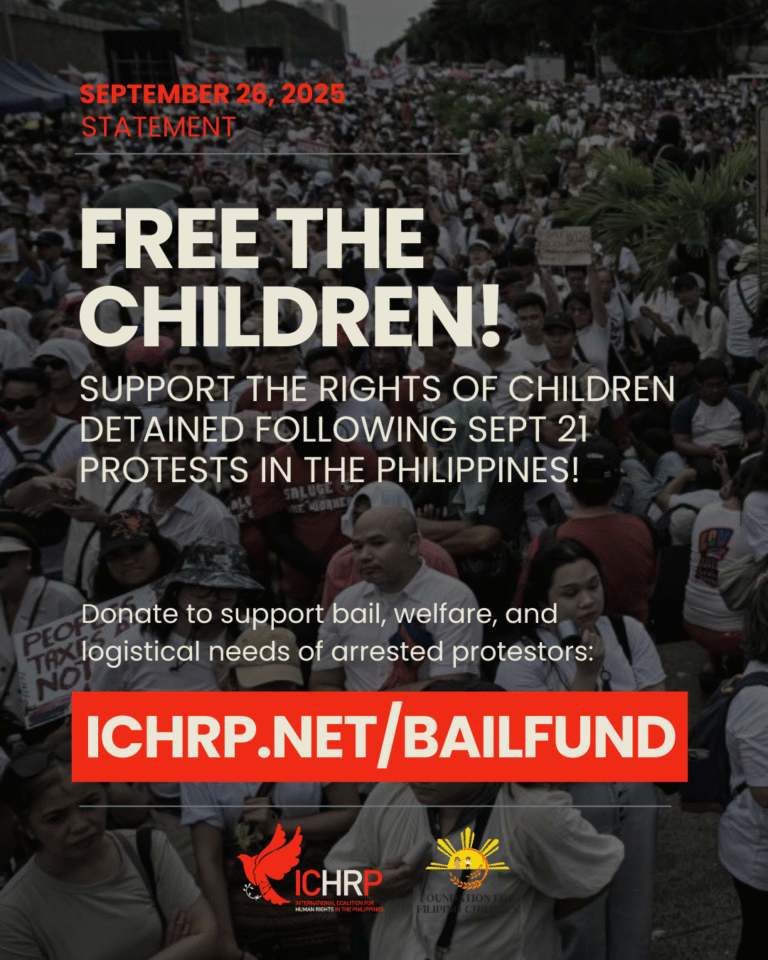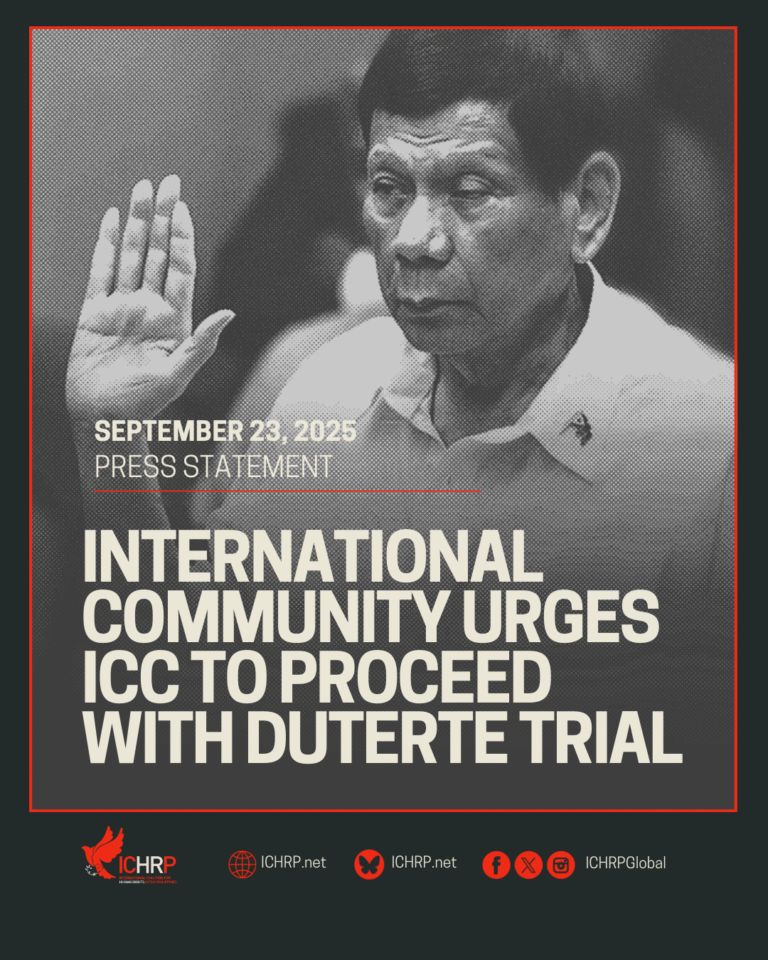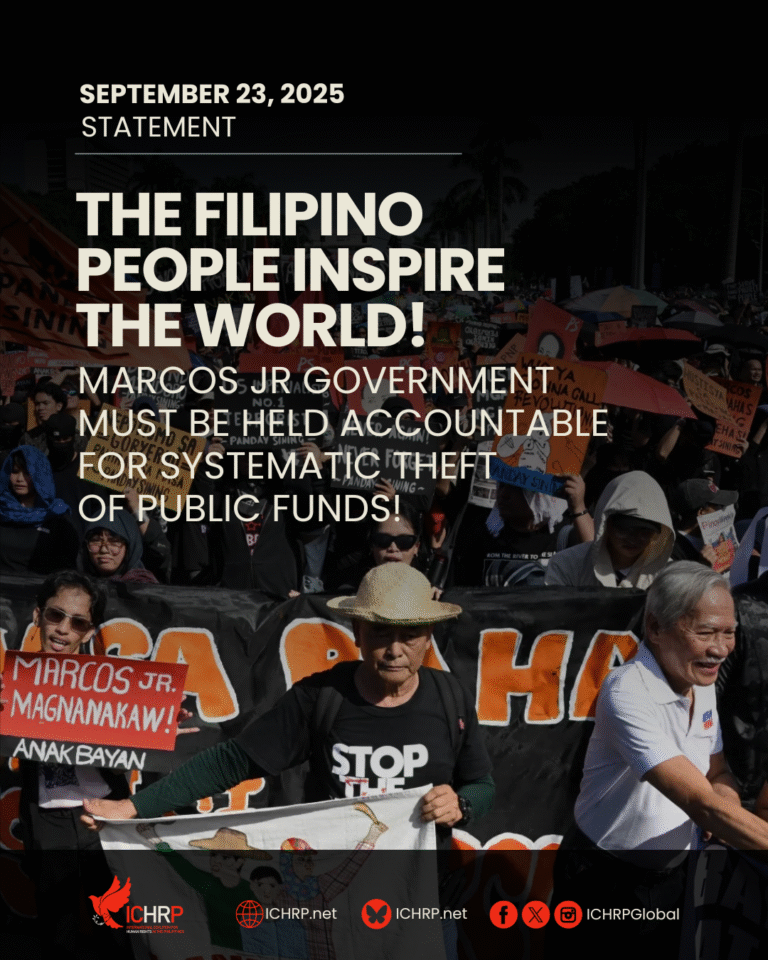Time and again, peasant farmers in the Philippines have shown they are not only the backbone of the country’s food system—but fearless champions of justice and defenders of human dignity.
In the Philippines, more than half of the population relies on agriculture for subsistence. This means that the struggle for land is an essential part of the overall fight for human rights and just peace in the country. Without genuine land reform – the redistribution of land to all peasant families – the Philippine countryside will remain mired in crisis and rights violations.
For centuries, since the time of Spanish colonialism, Filipino peasants have asserted their right to land. Under the dictatorship of Ferdinand Marcos from the late 60s to the mid 80s, peasants organized and strengthened the peasant movement, which was sown in the process of collective farming, established through protest marches, and forged in the struggle for land and justice. Since then, the peasant movement has become a pillar of the broader democratic movement in the country, carrying the conviction that land belongs to the tillers, not landlords or foreign interests.
Despite decades of relentless organizing and campaigning for land reform by organizations like the Kilusang Magbubukid ng Pilipinas (KMP), today Filipino farmers face a crisis unlike any before. Across the Philippines, peasants are being uprooted by a new wave of land grabbing and development aggression, as vast tracts of farmland are sold off to foreign investors. This not only strips farmers of their livelihoods but places the nation’s food security in foreign hands, threatening the livelihood and self-determination of all Filipinos. As the fields that once fed the country are lost, food prices—especially rice—are soaring, driving millions of Filipino families deeper into hunger while the very farmers who nourish the nation are pushed into poverty and landlessness.
Land-use conversion is a relentless march. According to the Bureau of Agricultural Statistics, the Philippines has been losing about 27,000 hectares of agricultural land every year since 1991. Productive farmland is disappearing and being replaced by gated subdivisions, mega malls, golf courses, and export-oriented economic zones. Many peasants do not own the land they work on – landlords from political dynasties sell their land out from under them through coercion, backroom deals, or false promises. Landlords impose upon peasants a rapid loss of income, community, land they have tilled for generations, and even their homes. Evicted peasants become forced migrants who must travel to brutal plantations, job-limited cities, or exploitative worksites in foreign countries to support their families.
The Marcos Jr. administration has thrown open the Philippines to foreign corporations eager to exploit its natural resources. The government has greenlit massive foreign-owned renewable energy projects—sprawling solar farms and offshore wind developments—under the Renewable Energy Act, which, like the Mining Act of 1995, allows 100% foreign ownership.
These projects are expanding rapidly in areas like Mindoro, the Cordillera, and Negros. They are branded as “progress,” yet their hidden costs are staggering. Their owners commit mass displacement of rural communities, cut peasants off from their land, and bulldoze rice paddies and vegetable fields to make way for industrial sites. Instead of fostering sustainable growth, these projects are deepening rural poverty and removing farmland from the very hands that could use it to feed the nation.
What makes this adversity even more alarming is that it has been enabled and reinforced by decades of U.S.-backed counterinsurgency (COIN) programs in the Philippines. The COIN doctrine, rooted in the U.S. military’s Field Manual 3-24, is designed to defeat insurgencies by winning “hearts and minds” while dismantling their social base of support. In the Philippines, that base has long been the rural peasantry—the very sector represented by KMP.
For decades, U.S. counterinsurgency (COIN) strategies have quietly shaped the contours of Philippine policy—especially in the countryside. Through joint training programs, intelligence sharing, and extensive military aid, U.S. forces have helped arm and organize the Philippine military to carry out “clear, hold, build” operations in rural zones. These efforts, from the Joint Special Operations Task Force–Philippines to today’s Enhanced Defense Cooperation Agreement bases, have often translated on the ground into red-tagging, arbitrary arrests, extrajudicial killings, and the forced displacement of peasant organizers and entire communities resisting land grabs.
COIN has also reframed land struggles as security threats. Rural resistance to foreign-backed mining, energy, and agribusiness projects is regularly cast as insurgency support rather than legitimate protest, providing a pretext for deploying troops to crush peasant movements such as the KMP by branding them “terrorist fronts.” Even land policy has been molded by this logic: agrarian reform has been treated less as a path to social justice than as a tool to pacify unrest. Programs like the Comprehensive Agrarian Reform Program (CARP) were designed to defuse rebellion, not to redistribute land—leaving loopholes that allowed landlords to retain control over prime agricultural estates while the structural roots of rural poverty remained untouched.
The result is a grim paradox: while peasants are criminalized and militarized under COIN frameworks, their lands are simultaneously handed to foreign investors under “development” programs. This is not a side effect—it is how COIN works: eroding the social foundations of rural resistance while opening the countryside to corporate capital.
The battle for land is not just about property lines—it is about the right to food, the right to dignity, and the right to self-determination.
By militarizing peasant regions, branding grassroots land struggles as security threats, and enabling foreign corporate land grabs, the U.S.-backed COIN framework has deepened hunger, accelerated displacement, and hollowed out Philippine food sovereignty.
As KMP marks 40 years of struggle this year, their call rings clearer than ever: Without land, there is no food. Without food, there is no freedom.
As ICHRP kicks off peasant month in October, look out for more information in the coming weeks to learn about what you can do to show solidarity and support the struggle for land and liberation in the Philippines.







